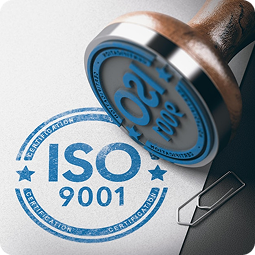Compliance with Australian WHS Regulations
Stay Legally Compliant & Operate Safely with Expert WHS Support
At SSOS, we help businesses navigate the complex landscape of Work Health & Safety (WHS) legislation in Australia. Our compliance services are designed to ensure your workplace meets all national and state-based WHS requirements—minimising legal risk, promoting safety, and supporting business continuity.
With our expert guidance, you can stay up to date with evolving regulations, avoid penalties, and maintain a proactive approach to health and safety compliance.



What Does WHS Compliance Involve?
Workplace compliance in Australia means aligning your business operations with the Work Health and Safety Act 2011 and relevant codes of practice. This includes:
- Identifying and managing workplace hazards
- Implementing and documenting control measures
- Providing adequate training and supervision
- Maintaining up-to-date safety documentation
- Meeting specific obligations for high-risk work activities
Non-compliance can lead to serious legal consequences, workplace injuries, and reputational damage. Our role is to help you avoid these risks and embed a culture of safety that meets legislative standards.
Why Ensure Regulatory Compliance?
Compliance with Australian WHS laws offers more than just legal protection—it builds a stronger, safer organisation:
Avoid Fines & Penalties
Stay protected against costly legal action.
Improve Workplace Safety
Reduce incidents through proper risk management.
Enhance Business Reputation
Demonstrate a commitment to employee wellbeing.
Streamline Operations
Avoid project delays caused by non-compliance.
Support Tender & Audit Requirements
Meet client and government expectations with documented safety systems.
Our WHS Compliance Support Process
We simplify the compliance process through a clear, step-by-step approach:
We assess your current safety systems, procedures, and documentation against WHS requirements.
We help identify hazards and implement effective control measures aligned with regulatory expectations.
We create or update your SWMS, safety plans, induction materials, and compliance records.
We train your staff on compliance procedures, safety responsibilities, and WHS obligations.
We monitor changes to regulations and ensure your systems stay up to date.
Why Partner with Solving Safety On Site?

Compliance is not just about ticking boxes—it’s about creating a workplace that genuinely prioritises safety. At SSOS, we bring deep expertise and a practical approach to WHS compliance.
Experienced WHS Professionals
We’re across all federal and state-specific legislation.
Tailored Compliance Solutions
We align your documentation and practices with your unique operations.
Audit & Certification Support
We help you pass audits, meet tender requirements, and prepare for regulatory inspections.
Practical, Ongoing Support
We don’t just consult—we partner with you to maintain long-term compliance.
See what our satisfied clients are saying
Discover how SSOS has helped businesses across Australia improve compliance, safety, and efficiency through expert consulting and tailored support.
SSOS made the entire certification process straightforward and hassle-free. Their team guided us every step of the way, ensuring we met all safety requirements on time.
John
Construction Manager
The team at SSOS helped us streamline our safety processes and improve compliance across all areas. Their proactive approach made a big difference in reducing workplace risks.
Mark T. D.
Warehouse Supervisor
SSOS provided us with clear, actionable solutions to enhance our safety protocols. Their guidance was essential in ensuring we met industry regulations and maintained a safe environment for both staff and residents.
Emily K.
Aged Care Coordinator

WHS Compliance in Australia
In Australia, WHS compliance isn’t optional—it’s a legal and ethical obligation. Businesses across all industries must demonstrate proactive safety management to protect their workforce and meet legal standards.
SSOS provides the tools, knowledge, and support you need to maintain compliance with confidence—no matter the size or complexity of your operations.
Frequently asked questions
To remove branding from your emails and forms, go to your account settings or the specific email/form template. Look for branding or footer settings and disable or customize them. Note that this option may only be available on paid plans or with white-label features.
A VAT identification number (VAT ID or VAT number) is a unique code assigned to businesses by tax authorities in countries with a Value Added Tax (VAT) system. It confirms a business is VAT-registered, allowing them to charge, collect, and often reclaim VAT. Essential for tax compliance and cross-border trade, it acts as a unique tax identifier for VAT purposes.
VAT is often not included in the advertised price (ex-VAT or plus VAT), particularly for business-to-business (B2B) transactions. This is because VAT-registered businesses can usually reclaim the VAT paid, making the ex-VAT price the true cost to them. It also simplifies pricing for international sales with varying VAT rates and provides clarity for business accounting. While consumer prices usually include VAT, ex-VAT pricing is a standard practice in many business sectors.

